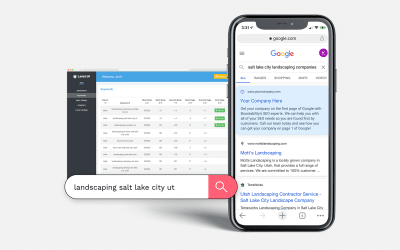If content is king, then brand awareness is its kingdom. As CEO or marketing director of your company, you understand the challenge of efficiently growing brand awareness in today’s economy. From marketing ROI to increased competition, it can be a headache to plan an effective marketing strategy. For most businesses, the primary challenges include, but are not limited to:
- Customer acquisition costs. Though the internet provides an incredible opportunity to reach a larger audience, inefficient digital marketing campaigns can cost more than initially expected. Pay-per-click advertising, for instance, is costly and doesn’t guarantee a customer conversion.
- Improving SEO and web traffic. Search engine updates such as Google’s Panda and Penguin algorithms are challenges for small businesses and major corporations alike. Understanding these updates and preparing for future changes is paramount to dominating your online niche.
- Establishing thought leadership. Successfully boosting brand awareness depends on your ability to build trust. Through thought leadership, your brand can engage customers, buyers, and influencers.
The top benefits of content marketing include:
- Greater brand awareness. Approximately 82 percent of marketers who invest in content marketing cite greater brand awareness as their number one priority. With two out of three marketers reporting an increase to their content marketing budgets, it’s clear that this strategy is working. Since content is key to every marketing effort online, it’s vital to focus on creating quality content that resonates with your target audience. Through improved SEO, social media marketing, and informative articles, your business will build awareness and ultimately improve its bottom line.
- Improved marketing ROI. For most businesses, the cost to get a visitor (not a conversion) is anywhere from $1 – $3.50. This means that the average organization will spend all of their revenue on marketing before the customer even opens his or her wallet. Since content stays permanently on the web, businesses experience long-term and residual value from content marketing.Content improves marketing ROI by boosting SEO, generating 55 percent more leads at 62 percent of the cost, and establishing a meaningful relationship with consumers. A regularly curated business blog, for instance, gives loyal customers new material to look forward to reading while creating opportunities for new visitors to discover your site.
- Long-term value. Content marketing is a timely solution in more ways than one. It provides long-term value by withstanding ever-changing search engine algorithms. Many businesses that used questionable SEO strategies lost their front-page rankings as a result of Google’s Penguin and Panda updates, for instance. Since search engines are consistently trying to provide the most valuable content for consumers, businesses that invest in meaningful content marketing are guaranteed to succeed where their competitors fail.Content also creates long-term value through a cumulative effect, as each new post builds on the web presence that previous posts have already established. Highly optimized content marketing builds your online kingdom and attracts new citizens – paying customers, that is.
- Thought leadership. Whitepapers, case studies, and business blogs give your organization a platform to communicate with potential clients on your terms. These pieces accelerate business growth by increasing lead flow and conversion rates. Since 61 percent of consumers are more likely to purchase from a business that creates custom content, it’s clear that content marketing is no longer an option for businesses serious about establishing thought leadership. Aside from establishing trust through thought leadership, brands experience residual benefits from creating authoritative content. Third-party bloggers, for example, are more likely to re-blog, share, or write about your business if you establish thought leadership. There are a plethora of bloggers in every industry that are searching for new ideas and topics to write about. If your brand establishes thought leadership through content marketing, then bloggers in your industry are more likely to become “foot soldiers” for your organization and help spread your message.
- Increased conversion rates. At the end of the day, content marketing is all about growing your business and your bottom line. Businesses with 100-400 pieces of content online generate 600 percent more leads and conversions than their competitors that aren’t as invested in content marketing. Regular posts give your organization an opportunity to establish a meaningful relationship with readers, which gains their trust and willingness to do business with your brand. Over time, content marketing turns these one-time customers into loyal brand ambassadors who tell others about your company’s excellent services and products. As your content paints a positive image of your business online, your conversion rates are poised to rise for years to come.





